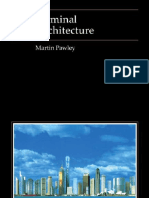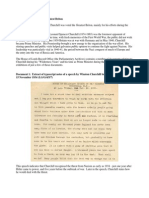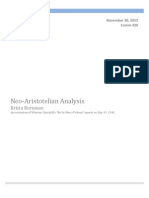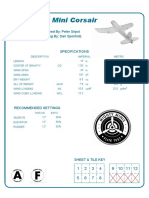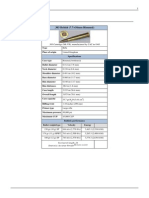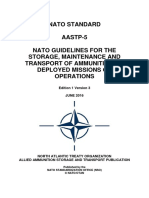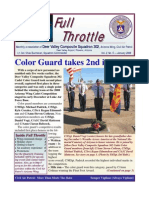0 ratings0% found this document useful (0 votes)
429 viewsWchurchillseptember 3
Wchurchillseptember 3
Uploaded by
api-258399738Copyright:
© All Rights Reserved
Available Formats
Download as DOCX, PDF, TXT or read online from Scribd
Wchurchillseptember 3
Wchurchillseptember 3
Uploaded by
api-2583997380 ratings0% found this document useful (0 votes)
429 views4 pagesOriginal Title
wchurchillseptember 3
Copyright
© © All Rights Reserved
Available Formats
DOCX, PDF, TXT or read online from Scribd
Share this document
Did you find this document useful?
Is this content inappropriate?
Copyright:
© All Rights Reserved
Available Formats
Download as DOCX, PDF, TXT or read online from Scribd
Download as docx, pdf, or txt
0 ratings0% found this document useful (0 votes)
429 views4 pagesWchurchillseptember 3
Wchurchillseptember 3
Uploaded by
api-258399738Copyright:
© All Rights Reserved
Available Formats
Download as DOCX, PDF, TXT or read online from Scribd
Download as docx, pdf, or txt
You are on page 1of 4
Sample Research Analysis for Research Checkpoint.
This is a speech given by Winston Churchill on September 3, 1939. It
highlights his leadership ability, vision, and also set in motion major
changes in Englands government. After the speech he is appointed the
1
st
Lord of the Admiralty in charge of defending England at the outbreak
of World War II
House of Commons
These short remarks were delivered by Winston Churchill at the outbreak of World War II and were originally omitted
from INTO BATTLE, the first volume of World War II speeches, but quickly inserted. They appear also in BLOOD
SWEAT AND TEARS (the US/Canadian edition of INTO BATTLE) and WINSTON S. CHURCHILL: HIS COMPLETE
SPEECHES 1897-1963, Robert Rhodes James, editor, NY: Bowker, 1974, vol. 6.
In this solemn hour it is a consolation to recall and to dwell upon our repeated efforts for peace.
All have been ill-starred, but all have been faithful and sincere. This is of the highest moral
value--and not only moral value, but practical value--at the present time, because the
wholehearted concurrence of scores of millions of men and women, whose co-operation is
indispensable and whose comradeship and brotherhood are indispensable, is the only foundation
upon which the trial and tribulation of modern war can be endured and surmounted. This moral
conviction alone affords that ever-fresh resilience which renews the strength and energy of
people in long, doubtful and dark days. Outside, the storms of war may blow and the lands may
be lashed with the fury of its gales, but in our own hearts this Sunday morning there is
peace. Our hands may be active, but our consciences are at rest.
We must not underrate the gravity of the task which lies before us or the temerity of the ordeal,
to which we shall not be found unequal. We must expect many disappointments, and many
unpleasant surprises, but we may be sure that the task which we have freely accepted is one not
beyond the compass and the strength of the British Empire and the French Republic. The Prime
Minister said it was a sad day, and that is indeed true, but at the present time there is another note
which may be present, and that is a feeling of thankfulness that, if these great trials were to come
upon our Island, there is a generation of Britons here now ready to prove itself not unworthy of
the days of yore and not unworthy of those great men, the fathers of our land, who laid the
foundations of our laws and shaped the greatness of our country.
This is not a question of fighting for Danzig or fighting for Poland. We are fighting to save the
whole world from the pestilence of Nazi tyranny and in defense of all that is most sacred to man.
This is no war of domination or imperial aggrandizement or material gain; no war to shut any
country out of its sunlight and means of progress. It is a war, viewed in its inherent quality, to
establish, on impregnable rocks, the rights of the individual, and it is a war to establish and
revive the stature of man. Perhaps it might seem a paradox that a war undertaken in the name of
liberty and right should require, as a necessary part of its processes, the surrender for the time
being of so many of the dearly valued liberties and rights. In these last few days the House of
Commons has been voting dozens of Bills which hand over to the executive our most dearly
valued traditional liberties. We are sure that these liberties will be in hands which will not abuse
them, which will use them for no class or party interests, which will cherish and guard them, and
we look forward to the day, surely and confidently we look forward to the day, when our
liberties and rights will be restored to us, and when we shall be able to share them with the
peoples to whom such blessings are unknown.
PRIMARY SOURCES DOCUMENTS: Churchill's War Speech Sept. 3, 1939
Written document analysis
1. What type of document is it? Newspaper, letter, memorandum, telegram, press release, report,
advertisement, congressional record, government report,
other.
Text of the speech given by Churchill 2 days after Germany invaded Poland, and on the day that
Britain declared war on Germany
2. What unique physical qualities are present? Letterhead, seals, notations, typed, handwritten,
other
It is a Copy
3. Is the document dated? If not, how can you tell it is a primary
source?
It is dated September 3, 1939
4. Who created the document? Name, position
Winston Churchill gave the speech on the request of the House of Commons. Churchill had
been a back bench member of Parliament for ten years many of those years he spent warning
England of Hitlers growing power. They did not listen!
5. For whom was the document written/created?
The speech was given following the deadline Britain had given Germany to withdraw from
Poland and just after a false alarm trip to the air raid shelter. Churchill used the speech to
inform, inspire, and explain what he thought should be the aim of the English in fighting this
war.
6. Why was the document written/created? Cite the evidence by quoting from the document.
He does not boast or say I told you so he puts the past into perspective of the situation now at
hand. The time to warn is over the time to fight is NOW.
The first paragraph emphasizes that the British Government has made repeated efforts for
peace. Churchill indicates that these efforts all have been faithful and sincere. This is of the
highest moral value . . . because being morally right will be necessary to sustain the great trials
that Great Britain now faces. He indicates that there are going to be some very tough times, but
our consciences are at rest.
The second paragraph again stresses . . . the gravity of the task which lies before us. . . But
then he offers the encouragement that, . . . there is a generation of Britons here now ready to
prove itself not unworthy of the days of yore and not unworthy of those great men, the fathers of
our land, who laid the foundations of our laws and shaped the greatness of our country.
The final paragraph points out that Great Britain is not going to war to gain empire, rather We
are fighting to save the whole world from the pestilence of Nazi tyranny and in defense of all that
is most sacred to man.
7. List and discuss three or four things the author said that you think are important.
1. He cites the moral reason for fighting, we did all we could to avoid war, now will sustain us
during the dark days ahead.
2. He reminds the English of their storied history of rising to the challenge. They will rise once
more!
3. We fight not for material gain but to save the world from Nazi tyranny.
4. Liberties and rights of Englishmen will have to be temporarily suspended until the war is over.
8. Are there questions left unanswered by the document? What would you ask the author if you
had the chance?
What were his 1st steps of leadership after his appointment?
Why suspend rights and liberties?
9. How will you use this document as part of your History Day project?
This speech demonstrates tremendous Churchills leadership ability and method. He is able to
articulate his vision We are fighting to save the whole world from the pestilence of Nazi
tyranny and in defense of all that is most sacred to man. This is no war of domination or imperial
aggrandizement or material gain; no war to shut any country out of its sunlight and means of
progress. It is a war, viewed in its inherent quality, to establish, on impregnable rocks, the rights
of the individual, and it is a war to establish and revive the stature of man. Following the speech
he is appointed 1
st
Lord of the Admiralty which demonstrates how persuasive he was in
articulating his vision and how effective he was in gaining the support of the House of
Commons. The project will demonstrate the tangible results of his leadership and
legacy! Especially during the Battle of Britain and partnership with FDR to fight the war
5 Quotations observations, analysis or key facts I pulled out from this source.
1. He used this speech not to gloat about the fact that his repeated warnings about Hitler
have come true and they were wrong.
2. He states In this solemn hour it is a consolation to recall and to dwell upon our repeated
efforts for peace. All have been ill-starred, but all have been faithful and sincere. This is
of the highest moral value--and not only moral value, but practical value--at the present
time.
3. He encourages and inspires his listeners that in spite of the serious situation, they are
ready for the challenge there is a generation of Britons here now ready to prove itself not
unworthy of the days of yore and not unworthy of those great men.
4. He clearly states the defensive purpose of the war. We are fighting to save the whole
world from the pestilence of Nazi tyranny and in defense of all that is most sacred to
man.
5. He perhaps controversially announces the need to suspend some of the rights they are
Perhaps it might seem a paradox that a war undertaken in the name of liberty and right
should require, as a necessary part of its processes, the surrender for the time being of so
many of the dearly valued liberties and rights.
You might also like
- A Man Called Intrepid: The Incredible True Story of the Master Spy Who Helped Win World War IIFrom EverandA Man Called Intrepid: The Incredible True Story of the Master Spy Who Helped Win World War IIRating: 4 out of 5 stars4/5 (104)
- Winston Churchill and the Art of Leadership: How Winston Changed the WorldFrom EverandWinston Churchill and the Art of Leadership: How Winston Changed the WorldNo ratings yet
- The Hitler-Bormann Documents, February-April 1945Document44 pagesThe Hitler-Bormann Documents, February-April 1945api-3831252100% (2)
- Modellers Shipyard Catalogue 2012Document60 pagesModellers Shipyard Catalogue 2012waleed46310% (1)
- Martin Pawley Terminal Architecture 1998Document225 pagesMartin Pawley Terminal Architecture 1998isca100% (1)
- War SpeechDocument3 pagesWar SpeechAzharuddin KaltengNo ratings yet
- Darkest Hour: How Churchill Brought England Back from the BrinkFrom EverandDarkest Hour: How Churchill Brought England Back from the BrinkRating: 4 out of 5 stars4/5 (31)
- Winston Churchill - The Great BritonDocument10 pagesWinston Churchill - The Great BritonMarco Paz GonzalezNo ratings yet
- WSC en E02Document105 pagesWSC en E02magdiNo ratings yet
- Thesis On Winston ChurchillDocument5 pagesThesis On Winston Churchillafbtmznam100% (1)
- Neo-Aristotelian Analysis: Churchill's "Be Ye Men of Valour"Document22 pagesNeo-Aristotelian Analysis: Churchill's "Be Ye Men of Valour"Krista Bornman50% (2)
- PEC. Mundos AglofonosDocument5 pagesPEC. Mundos AglofonosRaquel CHAMORRO GALVEZNo ratings yet
- Life During The Battle of Britain: An Analyis of The Life of English Citizens During World War Two From 1940-1941Document12 pagesLife During The Battle of Britain: An Analyis of The Life of English Citizens During World War Two From 1940-1941DeMarcus PowellNo ratings yet
- Thesis For World War 2Document6 pagesThesis For World War 2tammylacyarlington100% (3)
- Persepolis 1Document9 pagesPersepolis 196bvc98x6yNo ratings yet
- Americanloyaltyb00unse PDFDocument24 pagesAmericanloyaltyb00unse PDFfgump123No ratings yet
- The Pope and Chinese Torture Camps A Digest of Biblical Apologetics #4From EverandThe Pope and Chinese Torture Camps A Digest of Biblical Apologetics #4No ratings yet
- London Decamerone: History in short storiesFrom EverandLondon Decamerone: History in short storiesRating: 4 out of 5 stars4/5 (1)
- A History of the English-Speaking Peoples Collection: A One-Volume Abridgment by Christopher LeeFrom EverandA History of the English-Speaking Peoples Collection: A One-Volume Abridgment by Christopher LeeRating: 4 out of 5 stars4/5 (95)
- WEB Du Bois - Color and Democracy - ExcerptsDocument39 pagesWEB Du Bois - Color and Democracy - Excerptsyrzh8xj797No ratings yet
- Get Measuring Justice Primary Goods and Capabilities 1st Edition Harry Brighouse PDF ebook with Full Chapters NowDocument60 pagesGet Measuring Justice Primary Goods and Capabilities 1st Edition Harry Brighouse PDF ebook with Full Chapters Nowbiyoginasoom100% (8)
- The Second World War: The Classic One-Volume AbridgmentFrom EverandThe Second World War: The Classic One-Volume AbridgmentRating: 4 out of 5 stars4/5 (133)
- AppeasementDocument7 pagesAppeasementapi-2719593770% (1)
- (English) The Cold War - Crash Course US History #37 (DownSub - Com)Document10 pages(English) The Cold War - Crash Course US History #37 (DownSub - Com)Inaam Ur RehmanNo ratings yet
- Worksheet ChurchillDocument7 pagesWorksheet ChurchillElven AccuracyNo ratings yet
- Keeping the Home Fires Burning: Entertaining the Troops at Home and Abroad During the Great WarFrom EverandKeeping the Home Fires Burning: Entertaining the Troops at Home and Abroad During the Great WarNo ratings yet
- No Peace with Hitler: Why Churchill Chose to Fight WWII Alone Rather than Negotiate with GermanyFrom EverandNo Peace with Hitler: Why Churchill Chose to Fight WWII Alone Rather than Negotiate with GermanyNo ratings yet
- The Case of Tyler KentDocument62 pagesThe Case of Tyler KentHal Shurtleff100% (1)
- Battle Britain EssayDocument3 pagesBattle Britain EssayMargarita LariosNo ratings yet
- Thirty Years War Essay ThesisDocument7 pagesThirty Years War Essay Thesisrokafjvcf100% (2)
- While England Slept: A Survey of World Affairs 1932-1938From EverandWhile England Slept: A Survey of World Affairs 1932-1938No ratings yet
- Shadow Warriors of World War II: The Daring Women of the OSS and SOEFrom EverandShadow Warriors of World War II: The Daring Women of the OSS and SOERating: 4.5 out of 5 stars4.5/5 (8)
- Taking London: Winston Churchill and the Fight to Save CivilizationFrom EverandTaking London: Winston Churchill and the Fight to Save CivilizationNo ratings yet
- Hitler, Adolf - The Hitler-Bormann Documents (2023 - 01 - 11 11 - 09 - 39 UTC)Document46 pagesHitler, Adolf - The Hitler-Bormann Documents (2023 - 01 - 11 11 - 09 - 39 UTC)mxolisi mtshaliNo ratings yet
- Full Download War Its Nature Cause and Cure G Lowes Dickinson PDF DOCXDocument40 pagesFull Download War Its Nature Cause and Cure G Lowes Dickinson PDF DOCXlarabubarqa100% (8)
- How Diplomats Make WarDocument402 pagesHow Diplomats Make Warjohn_edmonstone100% (4)
- Major Blunders of the Second World War: New Insights into Mistakes and their ConsequencesFrom EverandMajor Blunders of the Second World War: New Insights into Mistakes and their ConsequencesNo ratings yet
- Iron Curtain Speech ThesisDocument8 pagesIron Curtain Speech ThesisDustin Pytko100% (2)
- Transcript War Comes To America pt4 363Document6 pagesTranscript War Comes To America pt4 363kardas auksinisNo ratings yet
- 50 Inspirational Speeches: Collectable EditionFrom Everand50 Inspirational Speeches: Collectable EditionNo ratings yet
- 50410Document60 pages50410nathonegenb5No ratings yet
- German Colonization Past And Future - The Truth About The German ColoniesFrom EverandGerman Colonization Past And Future - The Truth About The German ColoniesNo ratings yet
- While America Sleeps: Self-Delusion, Military Weakness, and the Threat to Peace TodayFrom EverandWhile America Sleeps: Self-Delusion, Military Weakness, and the Threat to Peace TodayRating: 4 out of 5 stars4/5 (3)
- Churchill The Young Warrior: How He Helped Win the First World WarFrom EverandChurchill The Young Warrior: How He Helped Win the First World WarNo ratings yet
- War Stories III: The Heroes Who Defeated HitlerFrom EverandWar Stories III: The Heroes Who Defeated HitlerRating: 4 out of 5 stars4/5 (4)
- What America Did: A Record of Achievement in the Prosecution of the WarFrom EverandWhat America Did: A Record of Achievement in the Prosecution of the WarNo ratings yet
- Appeasement Argument GameDocument5 pagesAppeasement Argument Gamechriskun97No ratings yet
- FT Mini Corsair v1.0 Full-SizeDocument4 pagesFT Mini Corsair v1.0 Full-Sizeshawn hagerichNo ratings yet
- Bs Ir KVMB Avg J Evsjvi Vwakvi Av 'VJB: BdwbuDocument22 pagesBs Ir KVMB Avg J Evsjvi Vwakvi Av 'VJB: Bdwbufaraby432No ratings yet
- Sailing On The SS Serpa PintoDocument8 pagesSailing On The SS Serpa PintoFausto Gardini100% (1)
- 43rd APPPA - List of ParticipantsDocument3 pages43rd APPPA - List of ParticipantsEasy to LearnNo ratings yet
- International Trade Theory and Policy 10th Edition Krugman Test Bank DownloadDocument9 pagesInternational Trade Theory and Policy 10th Edition Krugman Test Bank Downloadzhzh111100% (5)
- Infinity N3 - Hacking Programs (Quick)Document6 pagesInfinity N3 - Hacking Programs (Quick)Bruno CainNo ratings yet
- SJI NPCC Newsletter 2013Document10 pagesSJI NPCC Newsletter 2013SJINPCCPublicityNo ratings yet
- Exhibit B Approval LettersDocument30 pagesExhibit B Approval LettersJohn CrumpNo ratings yet
- Somalia - Airport Fire and Rescue Training in KenyaDocument4 pagesSomalia - Airport Fire and Rescue Training in KenyaAMISOM Public Information ServicesNo ratings yet
- Section 9 - Ground Combat Systems TechnologyDocument96 pagesSection 9 - Ground Combat Systems Technologykanteron6443100% (1)
- The Life and Correspondence of Sir Isaac Brock by Tupper, Ferdinand Brock, 1795-1874Document191 pagesThe Life and Correspondence of Sir Isaac Brock by Tupper, Ferdinand Brock, 1795-1874Gutenberg.orgNo ratings yet
- Iraq War of 2003Document6 pagesIraq War of 2003بريسكه طاهر100% (2)
- Buckmark PartsDocument7 pagesBuckmark Partsrolanddegilead01No ratings yet
- Latin Grammar Papers Arranged With VocabularyDocument128 pagesLatin Grammar Papers Arranged With VocabularyCarl D'SouzaNo ratings yet
- Davis, Jack - 2002 - PDF - Improving CIA Analytic Performance - Strategic WarningDocument10 pagesDavis, Jack - 2002 - PDF - Improving CIA Analytic Performance - Strategic WarningmNo ratings yet
- Gulliver's TravelsDocument5 pagesGulliver's TravelsJon-Jon Fajardo SalinasNo ratings yet
- Amm 0.303 BritishDocument9 pagesAmm 0.303 Britishenrico0% (1)
- Rambo - First Blood Part IIDocument94 pagesRambo - First Blood Part IINathan SwanskiNo ratings yet
- Aastp 5 Ed1 V3 eDocument128 pagesAastp 5 Ed1 V3 eBig BrotherNo ratings yet
- Deer Valley Squadron - Jan 2008Document8 pagesDeer Valley Squadron - Jan 2008CAP Unit NewslettersNo ratings yet
- Dragon Knight v7 - GM BinderDocument15 pagesDragon Knight v7 - GM BinderPaulo Jordan ReisNo ratings yet
- Commanders IntentDocument13 pagesCommanders Intentemile_iiiNo ratings yet
- Defence Helicopter - March-April 2019Document36 pagesDefence Helicopter - March-April 2019Joel Igno Tadeo100% (1)
- Vehicle Registration Plate NumbersDocument55 pagesVehicle Registration Plate NumbersArun PrasathNo ratings yet
- Rjvnvobdkxkbqw OyxfDocument286 pagesRjvnvobdkxkbqw OyxfiwantdabuukNo ratings yet
- JRMP 2.6 ChangelogDocument7 pagesJRMP 2.6 Changelogpratik rulesNo ratings yet
- Tulika KundaliDocument55 pagesTulika KundaliTulika GuptaNo ratings yet
- Khbo 103Document14 pagesKhbo 103McashNo ratings yet






